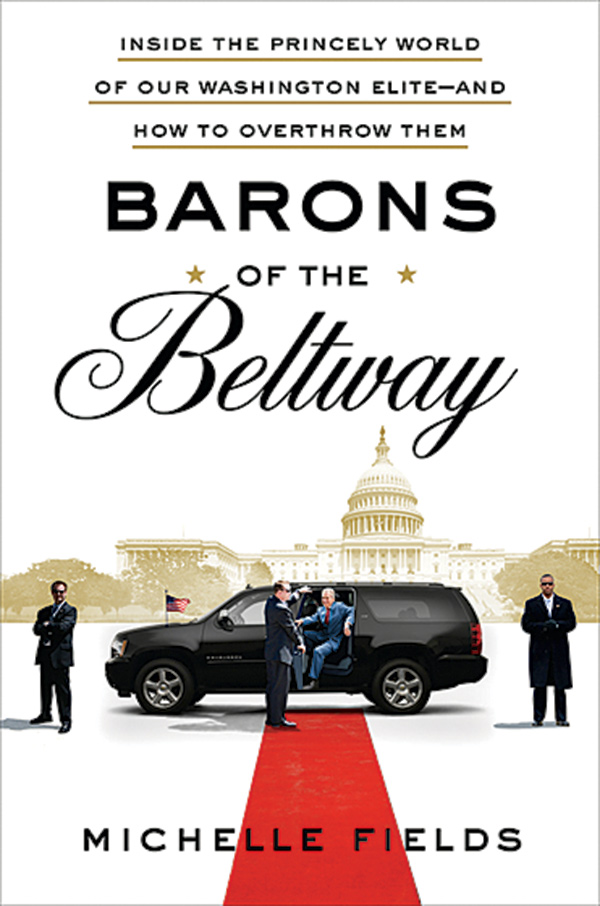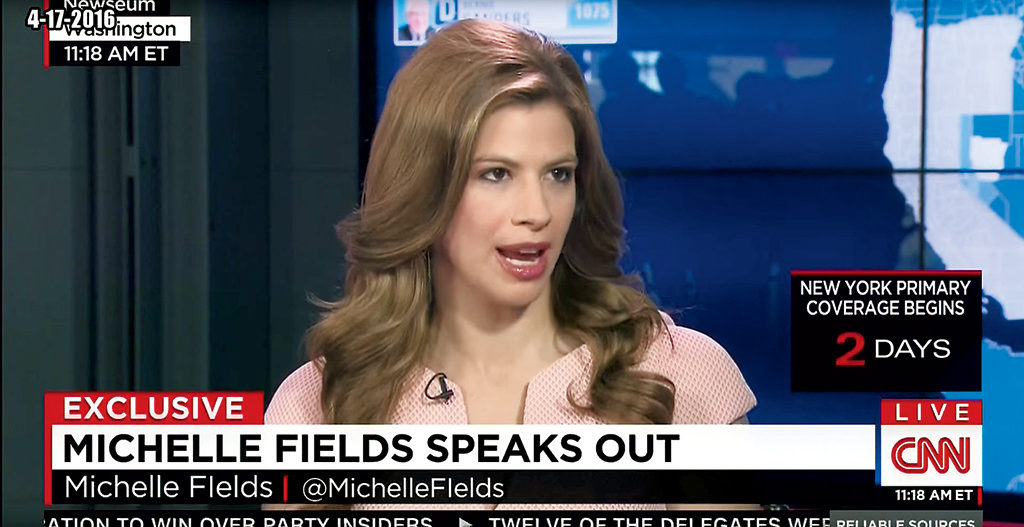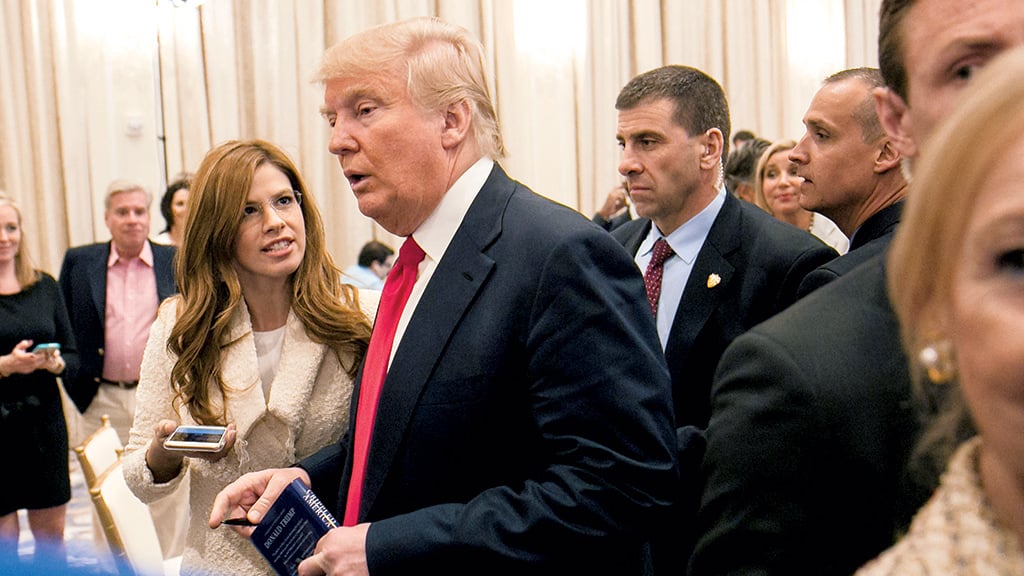The Year of Trump has had so many casualties—and it’s only summer—that the case of Michelle Fields may already have faded from memory. A refresher: Until mid-March, the 28-year-old Californian was covering Donald Trump’s campaign for Breitbart News Network. After an event at a Trump-owned golf course in Florida, Fields approached the candidate to ask a question. Suddenly, Corey Lewandowski, Trump’s campaign manager, grabbed her arm roughly. When Fields went to the police, Lewandowski was charged with battery, although prosecutors later decided there wasn’t enough evidence to support a criminal case.
After Fields’s ordeal, some of the glee in the mainstream press corps was smug and unwarranted. True, she worked for a website known for blatant appeals to bigotry. (A recent piece about Weekly Standard founder Bill Kristol referred to him as a “renegade Jew.”) But even those who work at a disgusting company don’t deserve to be abused by Lewandowski, who, if he knew his job, would bestow favors on journalists from outlets as friendly as Breitbart rather than get physical with them.
Much to Fields’s credit, she didn’t meekly ignore what happened but advertised it, going after Lewandowski on Twitter and elsewhere. This was especially heroic because she did so despite the obvious discomfort it caused her bosses. Breitbart News ran stories contradicting her account. Pretty soon, she resigned.

It may come as a surprise that Fields has published a book. What’s more surprising, though, is that it’s not an account of her time covering Team Trump—which surely would have earned her accusations of cashing in. Instead, Barons of the Beltway is something she’s clearly been working on since before Trump was the Republican front-runner. Unfortunately, it shows more of the spirit of her demogogic former subject than the spunk she showed when she found herself trampled by Trump.
In the book, Fields wants to expose Washington as the home of a haughty elite that has enriched itself at the expense of average Americans. What she ends up proving is that the biggest boondoggle in the capital remains the one that awards generous book contracts to right-wing pundits for churning out anti-Washington screeds.
If you haven’t read a book like Fields’s, you’ve seen one in an airport or bookstore. It typically features some form of Washington iconography on the cover, with an aggressively populist title, often verging into “how to” self-help territory. If the author is on his or her second or third book, “New York Times bestseller” is scrawled along the top—breaking with the far right’s usual disgust at the Times. Inside, Washington is barely recognizable. We may know it as a city where wealth is still, compared with moneyed enclaves up and down the coast, understated. The writer invariably casts Washington as a den of self-serving elites—a contempt impossible to fathom if you happen to run into him or her at Le Diplomate.
Liberal media outlets, of course, put out their fair share of bad journalism. But the conservative ecosystem that has existed in Washington since at least the Reagan administration has shown an uncanny ability to thrive while keeping its readers and viewers hooked on a steady diet of outrage, bigotry, and stupidity.
Fields’s version brings little new to the genre; it’s more of a revisit to recent GOP gags, taking a Bush-era poke at France—“the cranky Frenchman (is that redundant?)”—and ending squarely in Trump territory with a chapter titled “Taking Back Our Country.” In the intervening pages, she offers few insights into how Washington really works—or doesn’t work, for anyone but the members of a spoiled and corrupt political ruling class that’s “out of touch and out to lunch.” (The bathos of this statement, when combined with her more grandiose sentences—“The city has become one of the greatest threats to America’s freedom since George III”—is at least unintentionally amusing.) Amid attacks on the liberal media, she explains how Senate minority leader Harry Reid spends his mornings and how the former ambassador to France dresses himself. (Though why Fields targets a man who spends most of his days in France, not DC, is unclear.)
If money has flooded Washington in recent years, Fields quickly runs away from the causes of the new cash and its sources. What she’s interested in is shock and outrage. At one point, she keenly reveals that the President flies on Air Force One and Marine One—both of which use fuel—while he talks about the harmful effects of climate change. “Just imagine it,” she writes. “It’s ten a.m. and Marine One is waiting for the president. The president is running fifteen minutes late. Meanwhile, Marine One’s engines are idling, releasing toxins into the air.” Completing the scene, Fields adds: “. . . Secret Service agents shine their cars with a dust rag and make sure the small American flags perched upon them are upright and straight. Neither the king-like pomp nor the hypocritical carbon emissions are of any concern to the president on this Earth Day.”

That’s a nice encapsulation of Fields’s worldview, such as it is. The version of the question one always wants to ask moralists who drone on about hypocrisy is, in this case, whether Fields would prefer a President who declines to fly on Air Force One when speaking out against global warming, for the sake of consistency. Or who simply refuses to fly. But wouldn’t Fields and her ilk then mock him for being a goofy tree-hugger out of touch with the modern world?
Still, you have to appreciate a writer who follows up such tripe by adding, “These stories would disappoint our founding fathers, but they wouldn’t surprise Thomas Jefferson.” The role of carbon emissions in raising the earth’s temperature would surprise Jefferson, although with the slaveholding and all, I suppose he was the type to make an exception for certain moral failings.
The interesting question for Fields is whether she can survive and even prosper outside the conservative media bubble. Nowhere in her rise, from the Daily Caller to Breitbart to a gig on Fox News, did she encounter a challenge to the flabby logic or overwrought conclusions that fill her book. Now Fields has landed at the Huffington Post to cover the campaign.
Upended by the same brutishness that once ensured her paycheck, will she turn her ambition to something more like real journalism? Or continue a life dedicated to what she condemns DC’s nabobs for: doing well while not achieving anything?
Isaac Chotiner is a contributor to Slate. On Twitter, he’s @ichotiner.
















